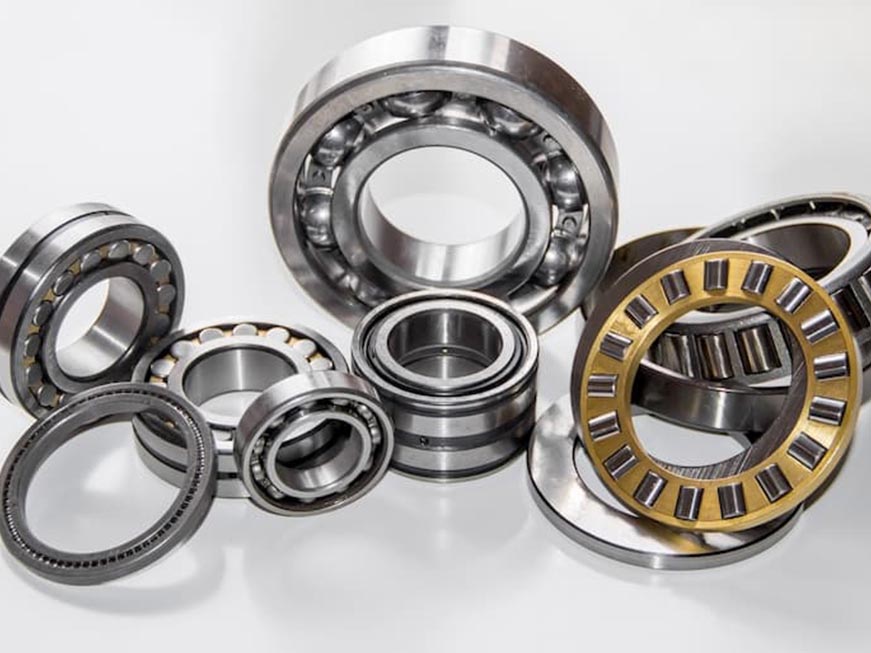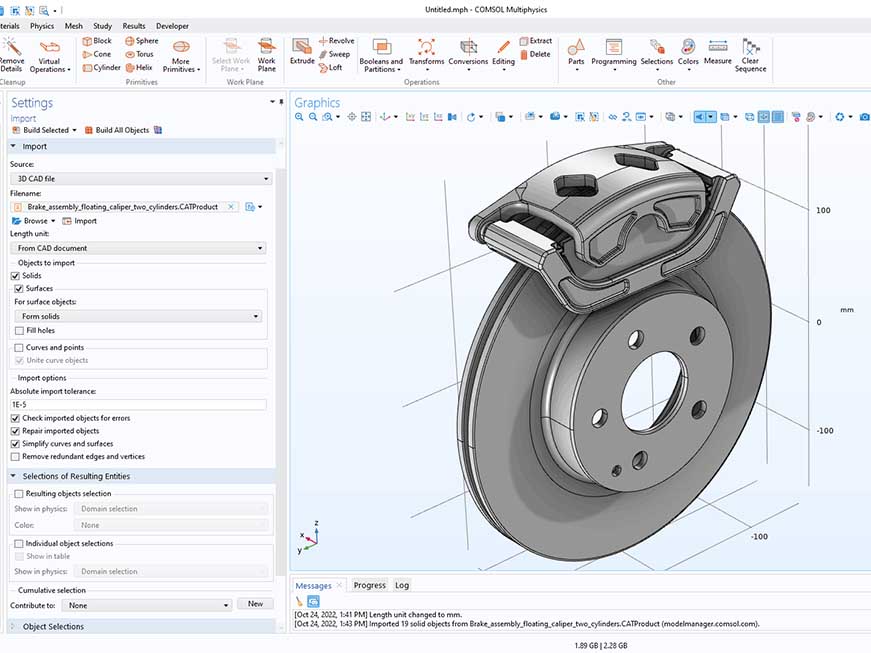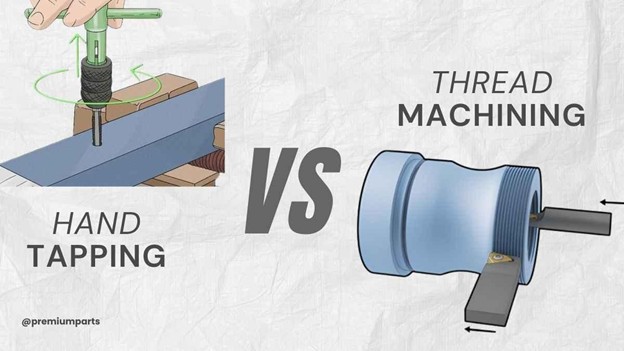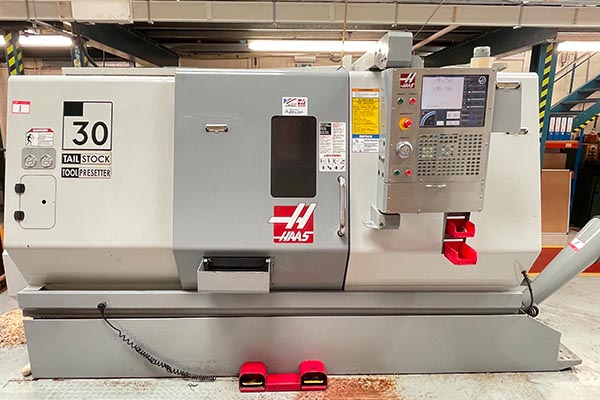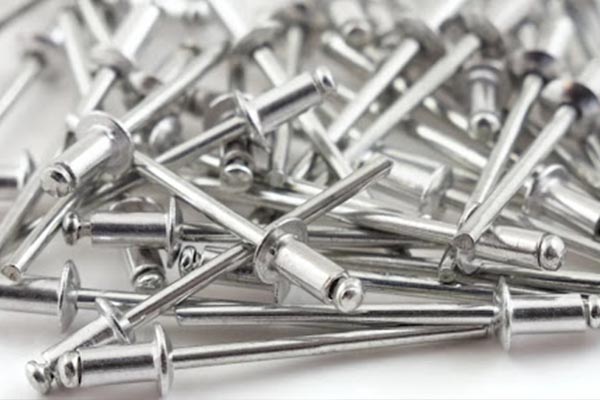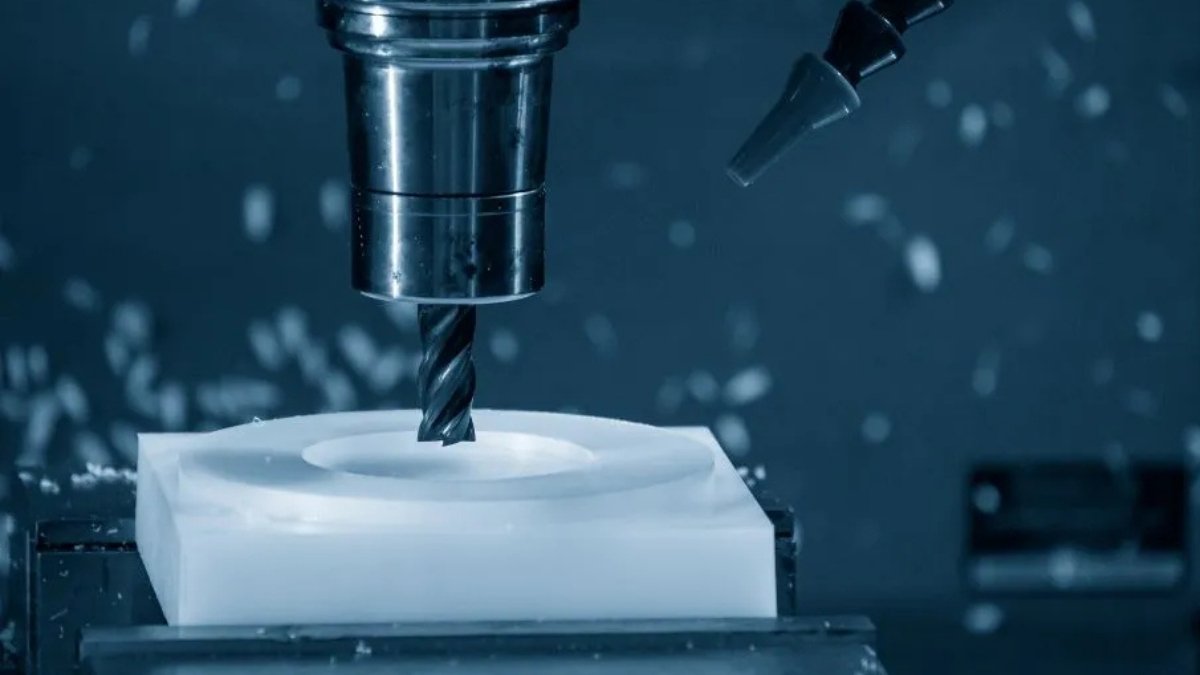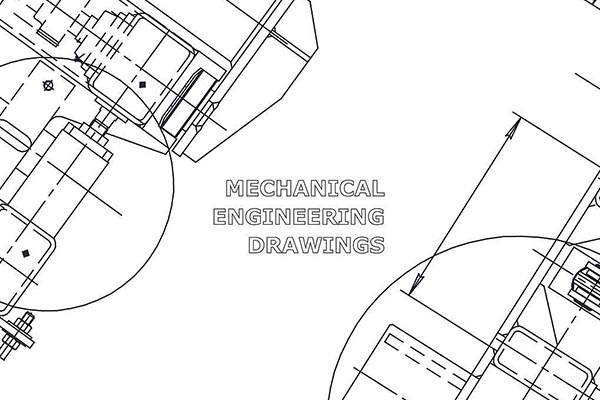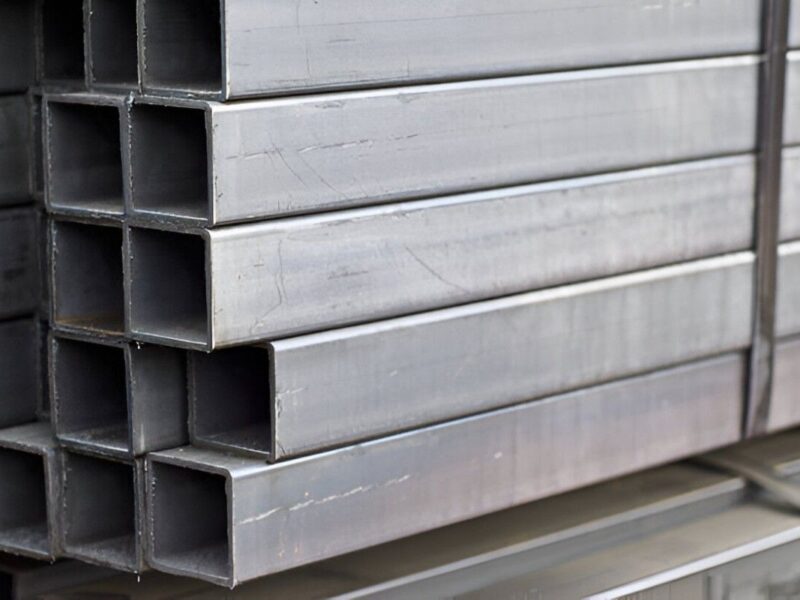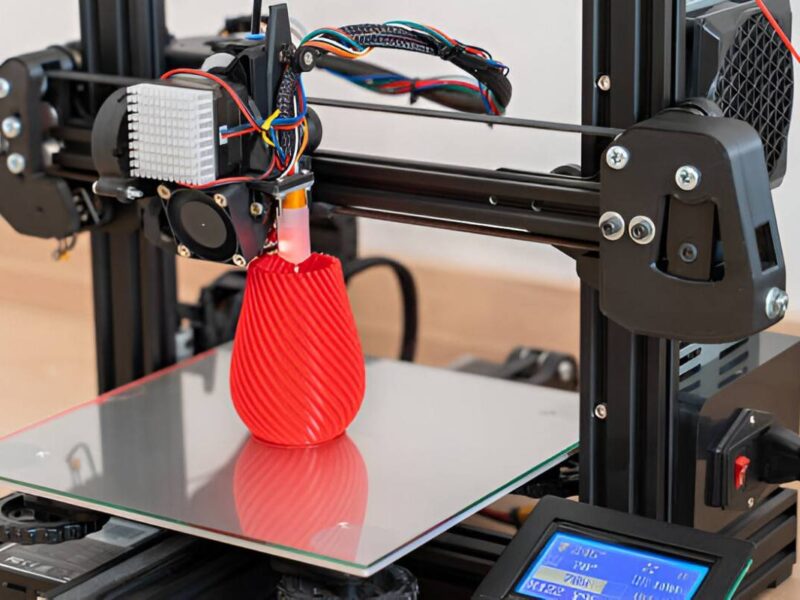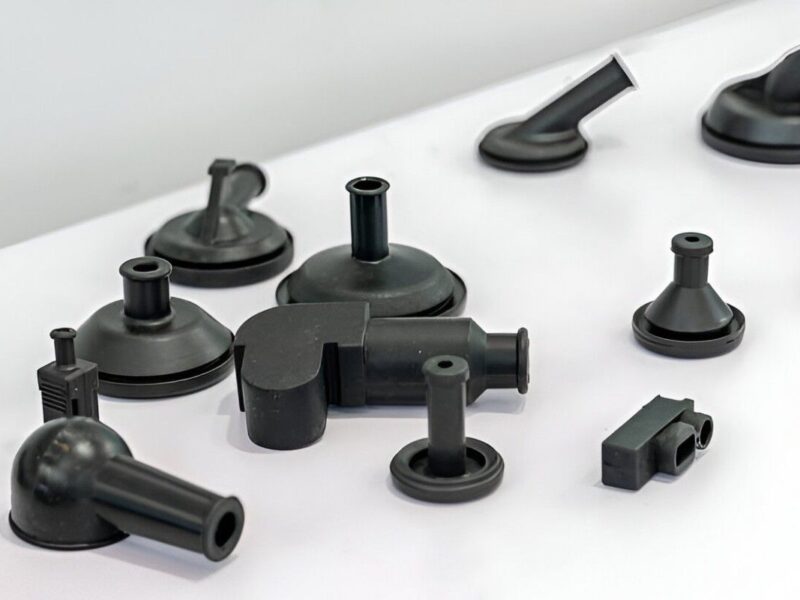We see machinery around us daily, from automobiles to the aerospace industry. However, while observing in-depth, we also see small parts like nuts, shafts, and fasteners, making the machine fully functional. Each part undergoes a different machining process from design to drilling and finishing. Besides the complexity, the manufacturing process also includes more steps and operations. Moreover, CNC manufacturing shops like Premium Parts take responsibility for their creations. Similarly, a CNC machine shop includes all the techniques, equipment, and the right arrangements to manufacture the parts.
Manufacturing shops ensure you get what you need, whether they are plastics or metals. Thus, this article will discuss different machining methods and their key concepts. Additionally, we will also understand the security and safety protocols to get maximum results without any casualties. Let’s dig deeper into the advantages, applications, and how you can choose the right CNC Manufacturing Shop.
What are CNC Manufacturing Shops?
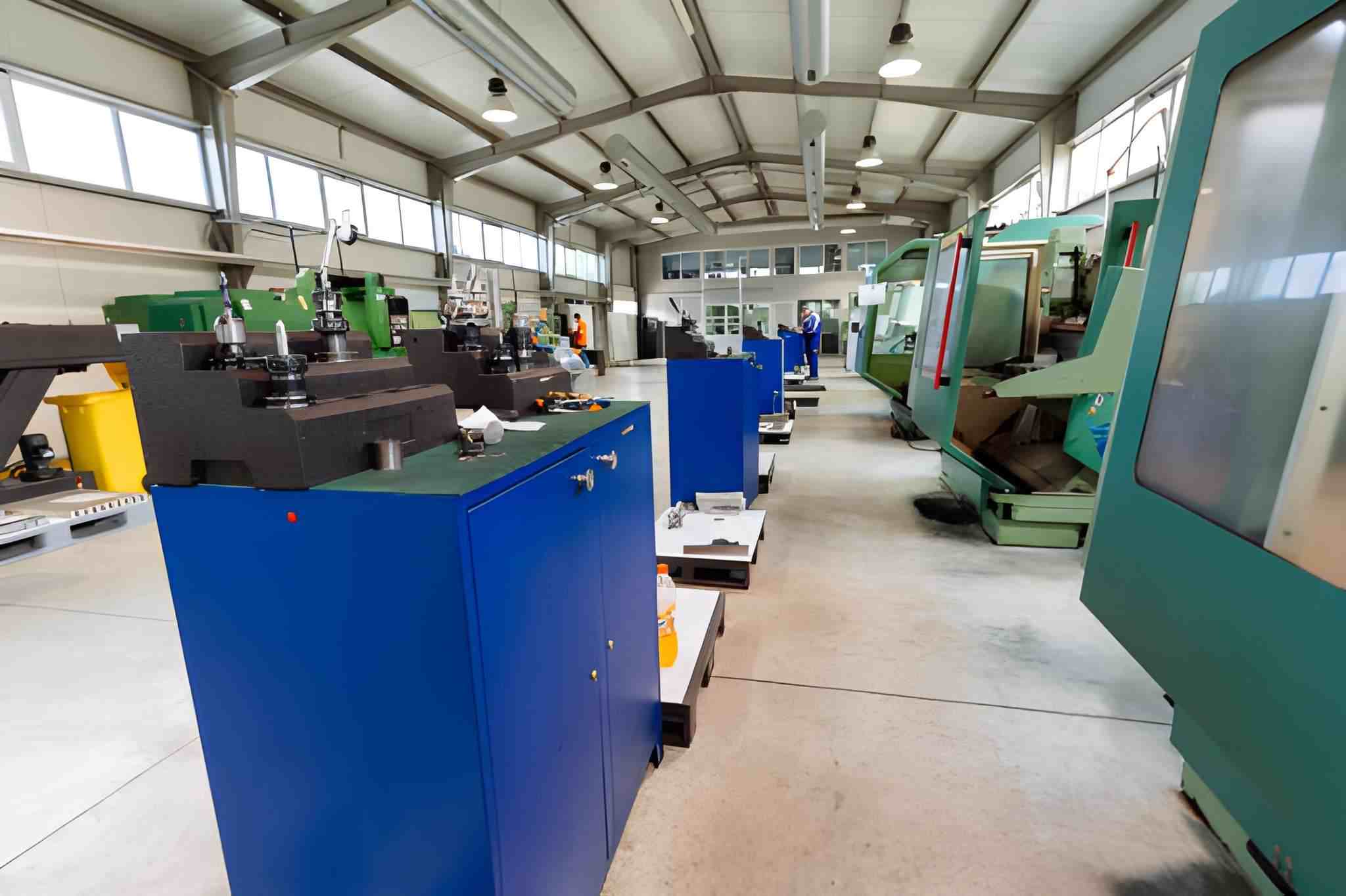 CNC Manufacturing Shop
CNC Manufacturing Shop
Image Description: Industrial factory with CNC machines and workers
Let’s start with the basics: What is a manufacturing shop? As the name suggests, space creates different types of products, tools, machinery, and parts. Moreover, these parts can be used on their own or as part of larger machinery. So, the term manufacturing shop refers to a facility equipped with advanced machinery. CNC manufacturing shops include CNC-controlled (Computer Numerical Control) machines. Besides, CNC machines feature computer software and pre-loaded instructions to automate the manufacturing process.
These machines have impressive movement control and precise tools that offer efficient and precise results. Nonetheless, CNC machining shops offer services for various industries according to their needs. They can design and produce different parts, whether for small-scale businesses or large-scale setups. Thus, businesses can create their own products without a CNC machining shop. Moreover, they can easily outsource CNC machining services from known shops such as Premium Parts.
How CNC Machining Shops Play Their Role in Different Industries?
Do you know how many parts an automobile has and which manufacturer provides them? Even a single aircraft can include parts from various manufacturers. Besides, many CNC manufacturing shops excel in one field and specific components. For example, if one excels in making shafts, the other might create nozzles. Therefore, different industries might need various manufacturers to complete their projects.
| Industry | Role of CNC Manufacturing Shops | Applications |
| Automobile | Production of high-tolerance parts that undergo pressure and offer good performance. | Engine parts, gears, brakes, shafts, pistons, and many others. |
| Medical | Includes the manufacturing of medical equipment and biocompatible parts. | Surgical tools, dental equipment, implants, bone screws, and others. |
| Aerospace | Manufacturing high-performance parts with good strength, precision, and lightweight. | Turbine blades, cockpit tools, gear components, structural brackets, satellite system parts, and others. |
| Electronics | Producing tiny parts with micro-level precision for electronics. | Mini chips, power connectors, laser components, circuit boards, and others. |
| Marine | Creating corrosion-resistant and durable parts for marine applications. | Propeller shafts, rudder systems, deck parts, drive shafts, anchor winches, etc. |
| Energy | High-end parts for energy production (oil & gas). | Drilling components, turbine blades, solar panel frames, valve systems, and many. |
Types of CNC Machines Used by CNC Machining Shops
CNC manufacturing shops are nothing without the CNC equipment. These shops feature different setups of CNC equipment and mechanisms to carry out different manufacturing tasks. Moreover, CNC machines create parts from raw materials and shape them according to the design. They do different cutting, milling, and drilling procedures on the surface of materials to create precise products. Moreover, each shop has different machines according to its CNC machining requirements. The most commonly used machines include:
Milling Machine
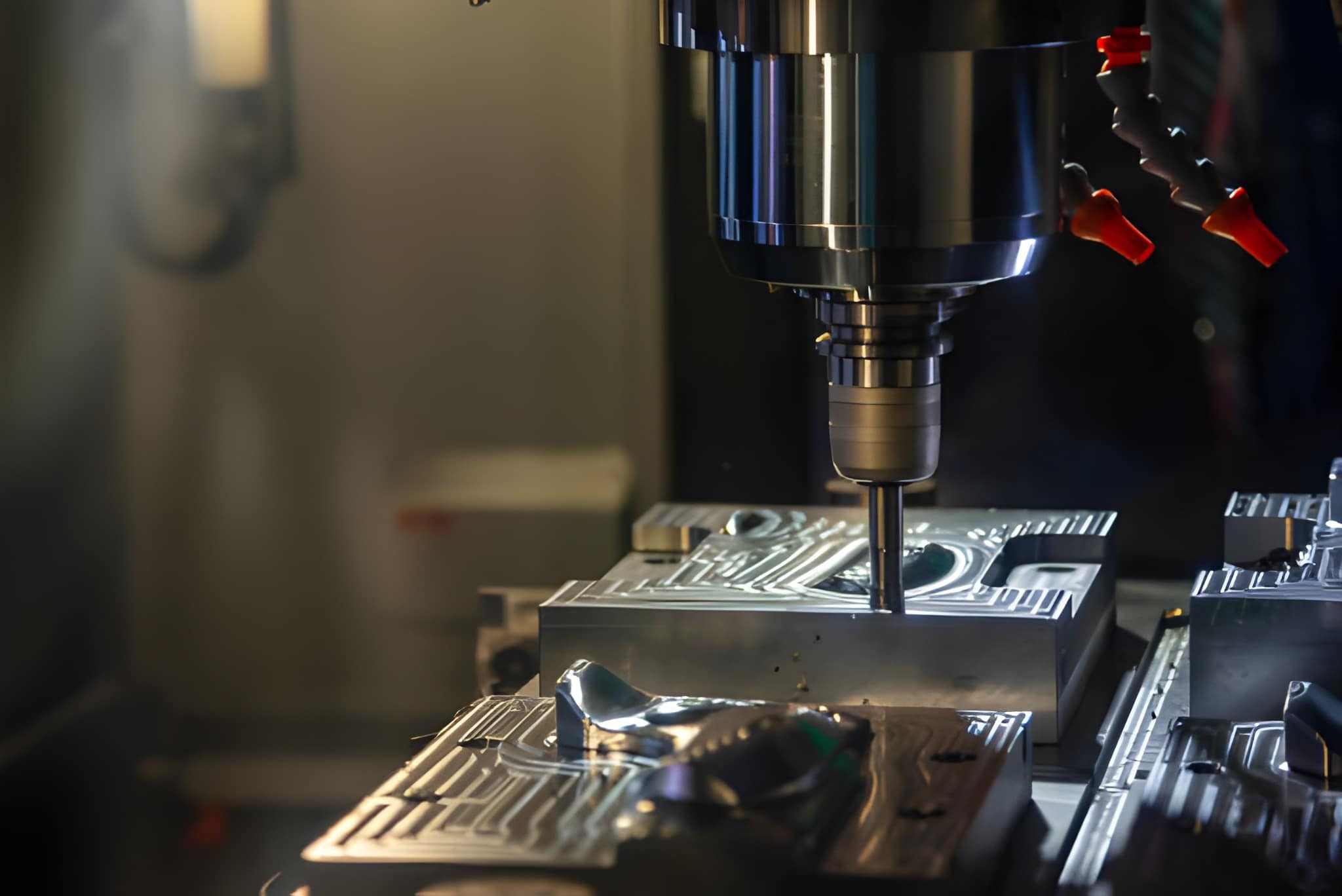 Milling Machine
Milling Machine
Image Description: CNC milling machine rough-machining injection mold parts with an indexable end mill tool.
A CNC milling machine works on materials to mold their shape into specific parts according to their design. This Machine has multiple axes from 3 to 5 and more. Generally, the manufacturers place the workpiece on the work table, which moves along the X and Y axes. The table holds the workpiece in the right position, and the spindle features cutting tools and moves along the Z-axis. So, the spindle performs the cutting operations while the table controls movements and feeds against the cutting tools.
This Machine is best for manufacturing parts with flat surfaces and simple designs. However, it can also work on complex geometries with other tools, including milling and drilling. Nonetheless, you can’t mix drilling with milling, as it has its own procedure and drilling Machine.
Lathe Machine
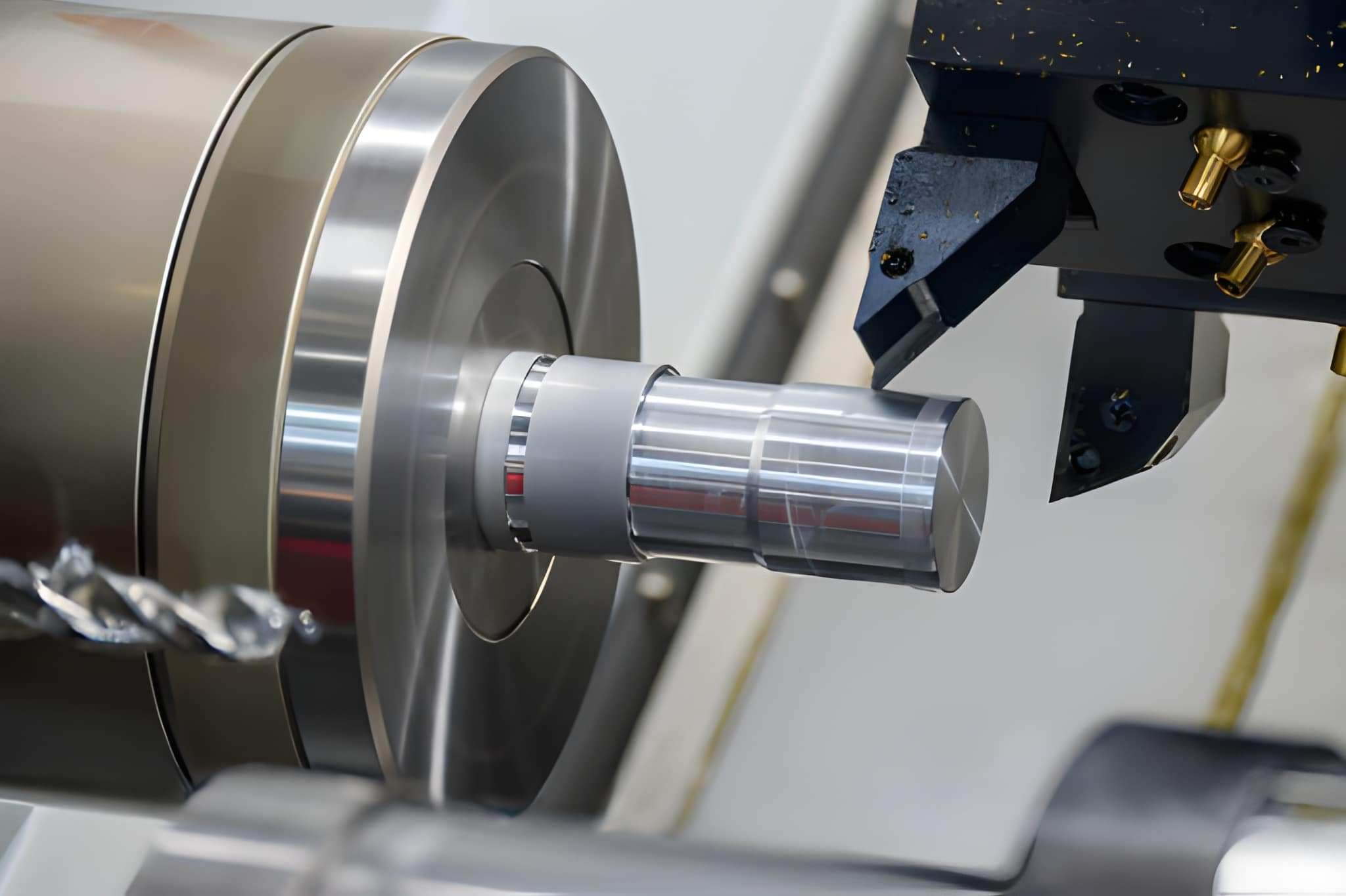 Lathe Turning Machine
Lathe Turning Machine
Image Description: The CNC lathe machine is forming and cutting the metal shaft part.
A lathe machine cuts down the material while it’s rotating to create a proper shape. In contrast with a milling machine, which moves the tool in a lathe, the material rotates, and the tool moves in that material. The material spins harmoniously around its center. Lathe machining is the best option for creating cylindrical and conical parts.
In Lathe machining, the spindle works across the rotating material and creates a shape. Moreover, to keep the part in place, there is a clamp available named a chuck. You can adjust its position to align the part with the cutting tool. Besides, this Machine is also capable of CNC turning, cutting, and many other similar operations.
Machining Center
The machining center is similar to a milling machine, but with some new advancements. Besides, it offers better production outcomes and handles complex designs. What makes this machining type special is that it can handle different CNC machining processes, including milling and drilling. Moreover, the machining centers in different CNC manufacturing shops have automatic tool systems. Pre-setup saves you time and allows you to perform different operations simultaneously.
Generally, there are two main types of machining centers: horizontal and vertical centers. Besides, there’s another universal version that includes both vertical and horizontal direction handling.
Grinding Machine
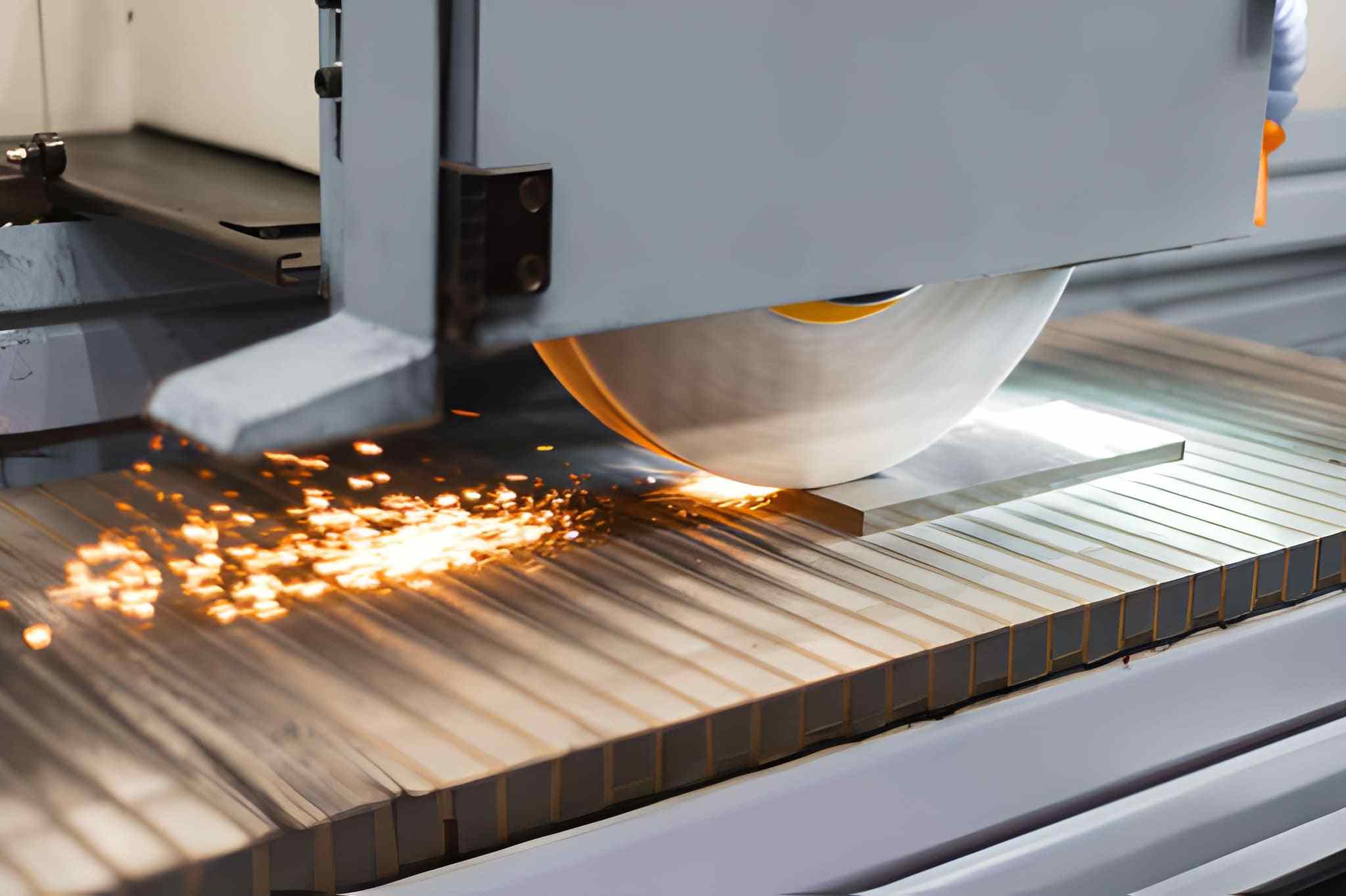 Grinding Machine
Grinding Machine
Image Description: An industrial surface grinding machine is grinding a flat metal part, with bright sparks flying out from beneath the rotating grinding wheel.
CNC grinding machines give proper shape and finish to the surface of parts. They make the surface smooth by removing debris, chips, and marks. The spinning wheel features an abrasive on its surface, which, when it comes in contact with the surface of a part, leaves a plane surface. With grinding, you fix the geometrical issues of parts and achieve a smooth finish. However, the result depends upon the speed of the spinning wheel, feed control, and abrasive material.
Manufacturers must carefully select the material type and grit numbers on an abrasive wheel to get the required results. The grit number means the fineness of the particles on the abrasive. Here’s their in-depth detail:
- Low Grit (10 – 24) is best for quick chunk and impurity removal.
- Medium Grit (30 – 60) is good for medium material removal and best for fabrication.
- Fine Grit (80 – 120) for high-quality finishes and deep material removal for finer polishing.
- Very Fine Grit (150 – 600) is suitable for premium finishes and achieves high precision with delicacy.
Drill Press
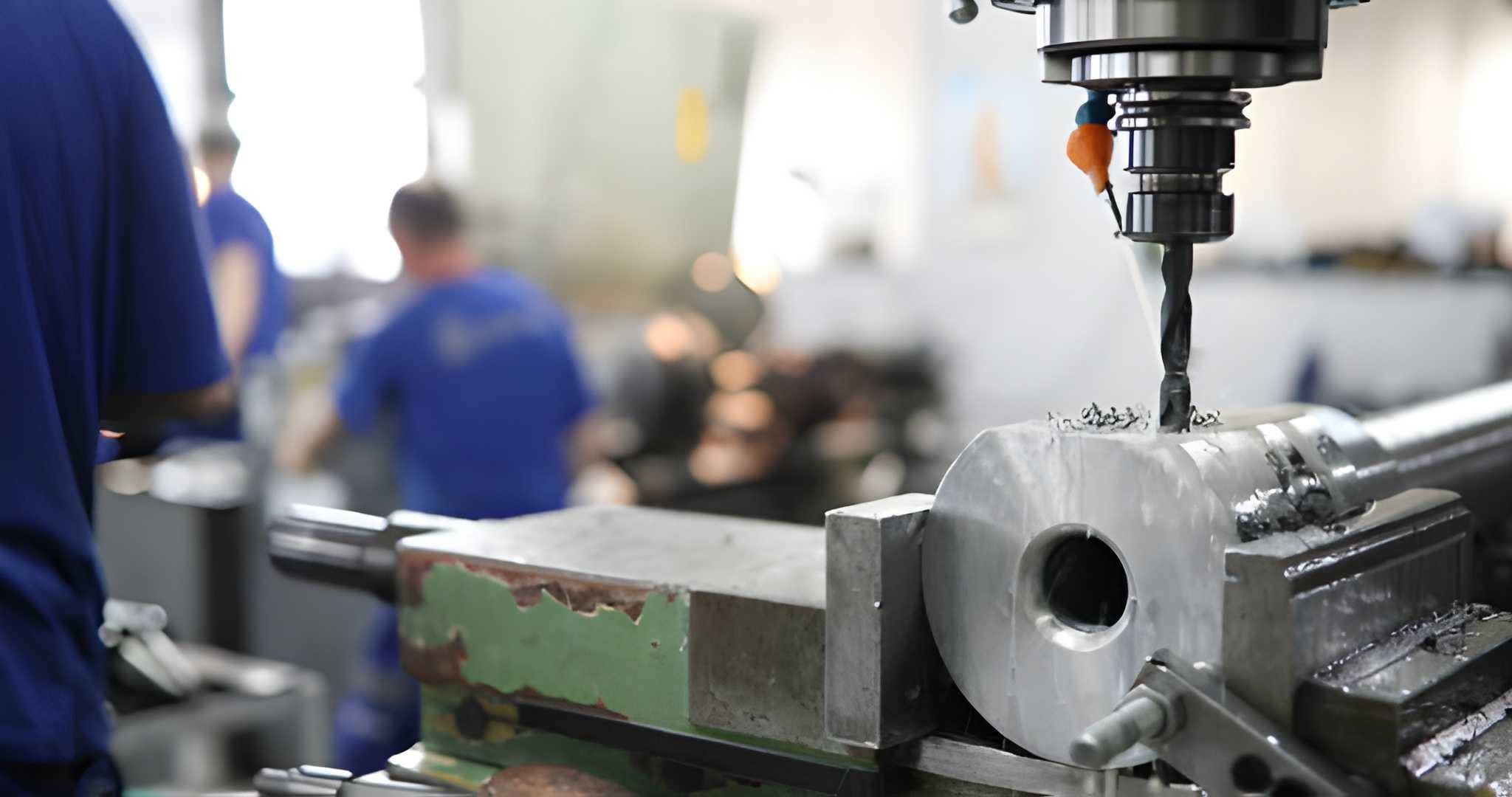 Drill Press Machine
Drill Press Machine
Image Description: A drilling machine creating a precise hole in a metal workpiece.
Drill Presses are best for precise results and deep drilling operations. They feature a drilling tool attached to a press, which can be automatic, hydraulic, or mechanical, and rotates the drill. Subsequently, when the drill tip touches the material’s surface, it starts spinning and drilling into it.
Manufacturers can control the pressure that the drill feed exerts on the workpiece manually and automatically. The automatic control systems can drill faster than traditional drilling methods.
Bandsaw
You can’t create parts directly from the raw blocks and large bars of materials by putting them directly in CNC machines. So, manufacturers must cut them into smaller parts before crafting their designs and geometries. Thus, the bandsaw’s work in CNC manufacturing shops is to cut through the big blocks and sheets of materials into smaller pieces. A bandsaw features long blades that cut through the material front by exerting forces through their edges.
EDM Machine
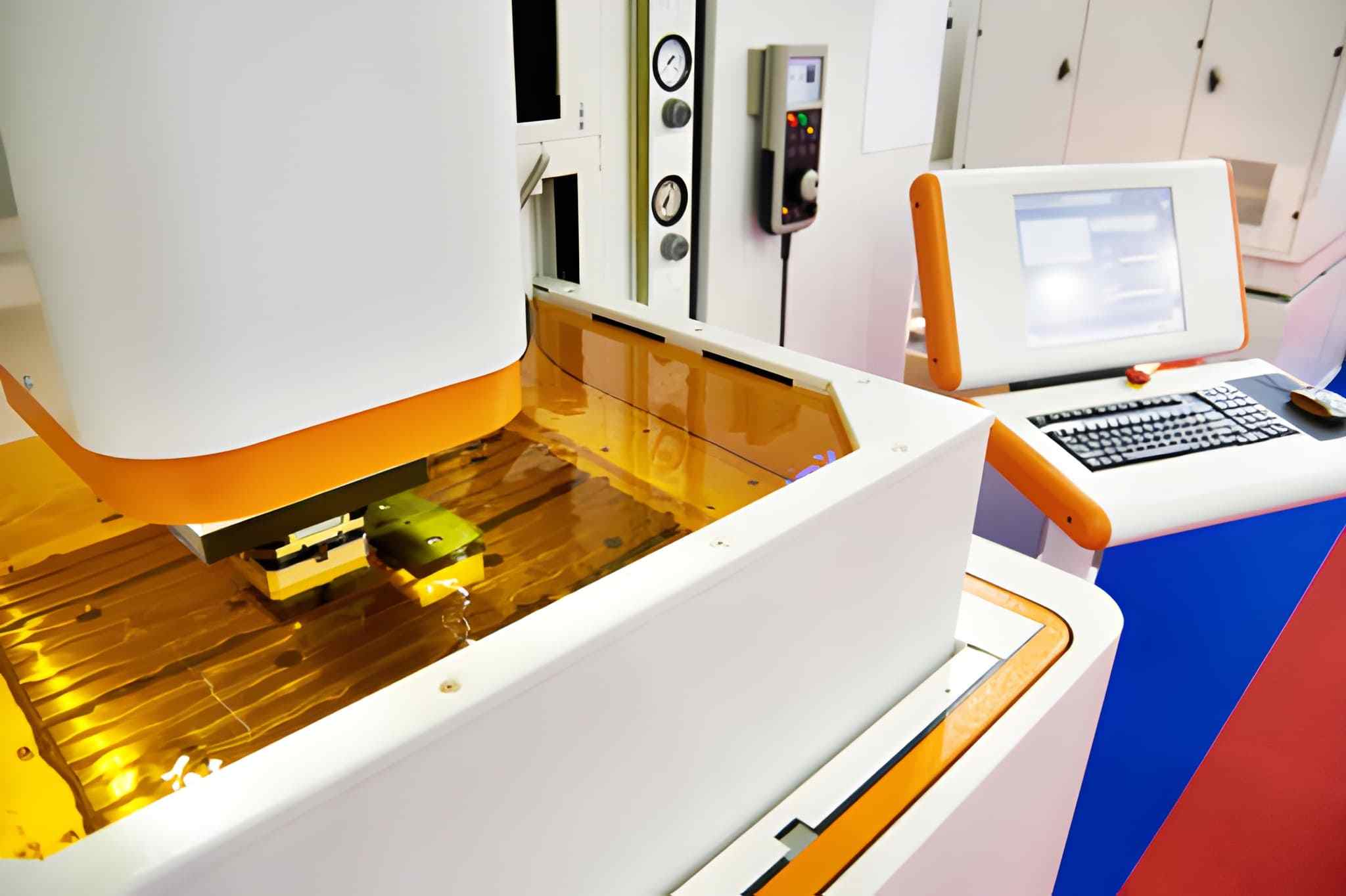 EDM Machine
EDM Machine
Image Description: An electro spark erosion machine removing material using controlled electrical sparks.
CNC machining shops also need machines with electrical discharge. These machines can manipulate hard materials and sensitive designs. Also, they are compatible with hard materials, complex shapes, sharp edges, micro-machining, etc. The EDM machine uses electrodes that touch the work metal and induce electrical discharge. Moreover, keeping the part and cutting tool in the dielectric fluid effortlessly removes the material.
With the high-temperature production during this method, the parts undergo manufacturing meltdown from the surface. Subsequently, the manufacturers can easily work on the part and create different geometries.
Inspection Tools
Expert CNC manufacturing shops don’t deliver the products right after their production. Rather, they ensure the quality of the products if they meet specific requirements. Thus, the production machines include inspection tools that monitor the dimensions, surface texture, characteristics, and tolerances to determine whether the end product is high quality. Some general tools for inspection include:
- CMM – Coordinate Measuring Machine
- Micrometers and Scalers
- Laser tools
- Hardness testing machines
CMM is the most sought-after tool for CNC machining shops, as it accurately measures geometries and surface quality.
Manual Vs. Automated Machining
In today’s fast-paced world, manual machining lags behind automatic machining methods. As the needs are diverse, the demand is high, so you can’t rely on manual labor and can’t find experts to do quality work. So, what prevails over both is a new machining method that entails both manual and automatic work. That’s CNC machining, which includes minimum manual intervention and offers accurate results. Therefore, let’s take a look at a few major differences between manual and automatic machining:
| Aspect | Manual Machining | Automatic Machining |
| Accuracy | Depends upon the expertise of the manufacturer. However, humans are prone to making mistakes and can’t keep the details consistent when it comes to large-scale productions. | Can achieve high-end precision as low as ±0.0025mm. They can create similar products without any notable change in design. Are best for large-scale productions. |
| Consistency | The part designs are not consistent. If a human has to work on the same product design multiple times, each product will differ slightly. | You can have high-end, consistent part design no matter if they are in high numbers. |
| Speed | Needs a lot of time and slows down the production process. | High-speed production with automatic controls and smooth machine movements. |
| Expertise | Need high skills of the manufacturers with years of experience in the same field to deliver quality results. | Need expertise in programming and setup, and the rest is just monitoring and making adjustments. |
| Cost Efficiency | From workforce to machinery and material waste, everything costs, but initial setup costs are relatively lower. | Initial set-up costs are high; however, they are best suited for a longer period and become cost-effective. |
| Flexibility | Highly flexible as operators can make changes in the designs as per requirements. | Have less flexibility as it needs changes in the software and tooling setup. |
Advantages of Taking Services from a CNC Manufacturing Shop
Each of the aerospace and automobile industries needs product manufacturing according to requirements. They can leap major benefits by outsourcing CNC product manufacturing. With little investment, they can create the products without spending on machining setup, material hunting, and skillset hiring. Besides, they have to share their ideas and designs with the Manufacturing shops, such as Premium Parts, and get them ready. Here are some other advantages of taking CNC machining services:
Precision and Accuracy
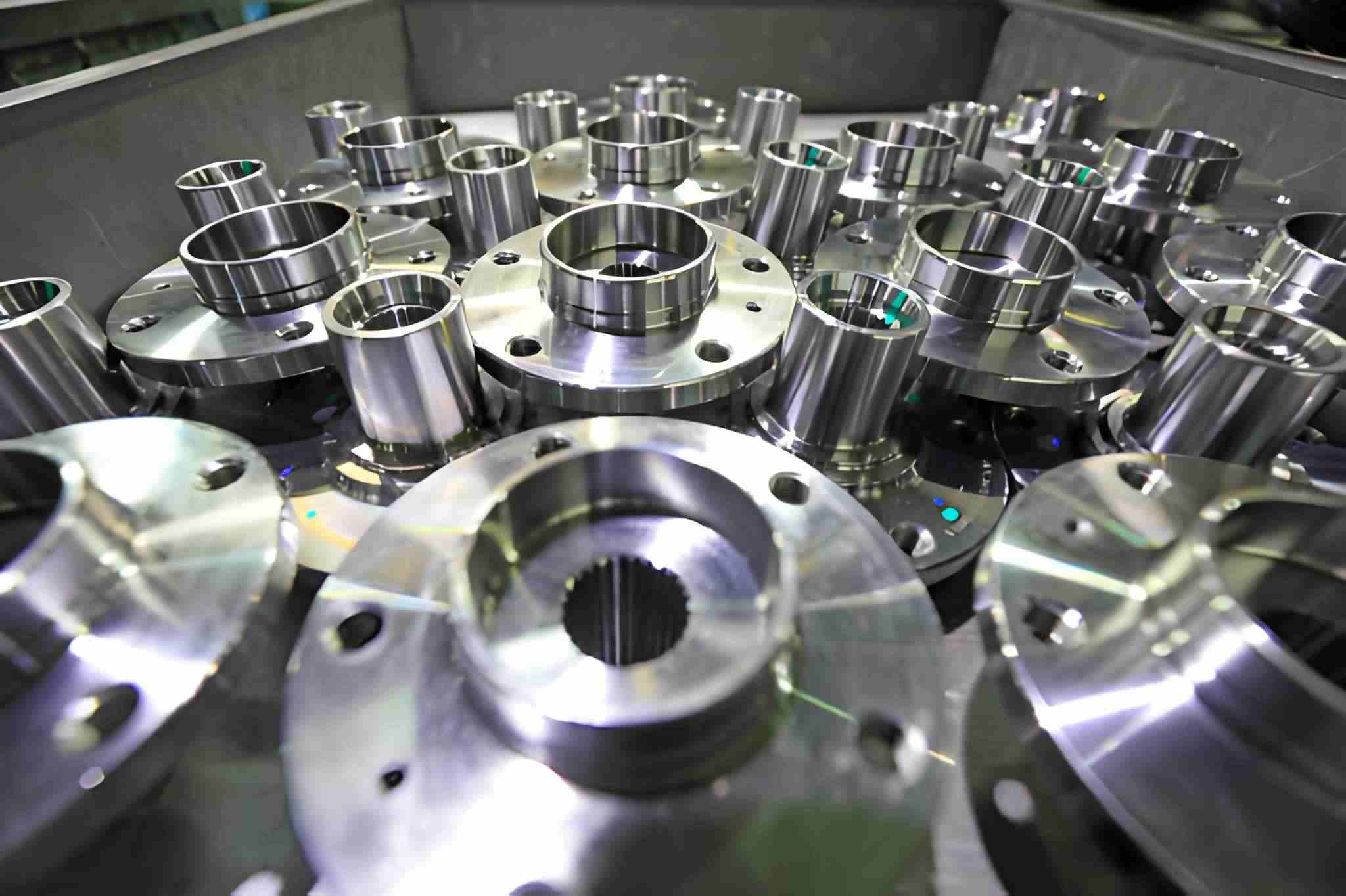 Stainless Steel Automotive Parts
Stainless Steel Automotive Parts
Image Description: Stainless steel machined parts of automobile brake systems in the production line.
The CNC machines offer precise product design. Moreover, consistency is a major factor when it comes to bulk production. The computer-programmed system ensures each part is similar to the design provided. However, precision and accuracy might not be easy for all manufacturing shops. Therefore, that depends upon the machines they have and the axes they can work on.
Speed and Efficiency
CNC machining is an automatic process with minimum manual labor intervention, so it usually produces fast results. Moreover, CNC machines can work tirelessly and manufacture products in bulk. As a result, the high production speed enhances productivity and reduces costs.
Cost Effectiveness
CNC machining might require a high cost for the setup; however, it’s highly cost-effective in the long run. Besides, the optimization of the tool path reduces waste and offers good results. Besides, without human intervention, it offers fast results and more products.
Complexity and Flexibility
CNC machines can work on different axes, resulting in the production of complex products. With a single setup, manufacturers can work on different geometries and deep holes. Moreover, they can design irregular profiles and surface finishes. Consequently, the manufacturer can also make changes in the design as per requirements.
Choose CNC Machining Shop Today
If you have an upcoming machining project, choose CNC services for cost-effective and precise results. The manufacturing shops have advanced machinery and expertise and offer high-end parts. With a vast network of material chains and machining setups, these shops are the best source for your next project.
Premium Parts is one of the leading CNC manufacturers with years of experience in parts production for various industries worldwide. Furthermore, we have a huge setup of CNC machines, including 3- and 4-axis milling, drilling, EDM machines, and many others.
Moreover, we can produce the products according to your needs and create a huge production volume. Lastly, our products are high-quality and accurate. Just get a quote from us, and let us help you with the next project.
Conclusion
In fast-paced work, we can’t do everything on our own. Especially in big industries, from packaging to energy, automobiles, and health, each needs parts for its projects. The best step is to outsource those from reliable CNC manufacturing shops. Thus, the industries collaborate with them to produce parts according to their requirements. So, rather than investing in the setup, finding the right labor, and spending bucks, they focus on their main project. Meanwhile, expert manufacturers like Premium Parts can offer high-standard parts according to their specifications.
FAQs
1. What are some major challenges of CNC machining shops?
Like other industries, the manufacturing industry faces some limitations. The major issue is the high investment cost for the setup; however, it becomes affordable in the long run. Secondly, with the advancements in technology, manufacturers need to update their machinery accordingly. Additionally, another challenge is operations and management, as adapting to new technologies takes time.
2. Are there any rules to follow in CNC machining for safety?
You need to take some measures for safety while working in CNC manufacturing shops. For example, PPE (Personal Protective Equipment) such as shoes, helmets, goggles, and other clothing is important to avoid physical hazards. Moreover, you need to consider the operational safety of machines, whether they are safe to use. Subsequently, the tool handling is important; the operator knows how to work with them.
3. How do you select the right CNC machine shop?
It’s best to gauge their capabilities and services to collaborate with the right CNC machining shop. Firstly, consider the machinery they use and their tolerance for surface finish. Besides, take quotes from different manufacturers and compare them with the services and quality they provide, then choose the best one.
Lastly, another important thing is to check the capacity and scalability of the manufacturing shop. What if you need a small batch, and they only work on larger ones? In addition, check reviews and analyze their customer service for experience.


